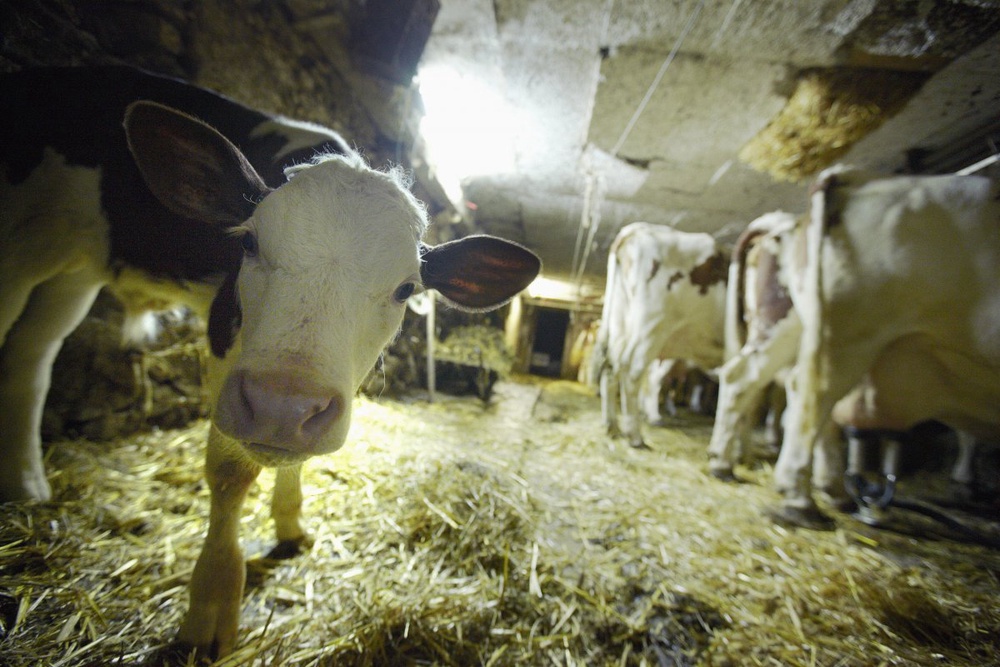
A team of New Zealand scientists claimed to be a step closer to producing allergy-free milk Tuesday, using a genetically-modified cow for their medical breakthrough, AFP reports. The team at the AgResearch Institute said they had bred the first cow in the world to produce high-protein milk with significantly reduced amounts of a protein believed responsible for allergies. "This outstanding breakthrough has enormous implications," said Graham le Gros, director of New Zealand's Malaghan Institute, which focuses on finding cures for allergies. The project has been underway since 2006 and came to fruition with milk from an 11-month old cloned calf named Daisy. "We were successful in greatly reducing the amount of beta-lactoglobulin (BLG), a milk whey protein which is not in human breast milk and which can cause allergic reactions," said Dr Stefan Wagner, one of the lead authors on the paper. "Two to three per cent of infants are allergic to cow's milk, and BLG allergies make up a large part of that percentage." The scientists first used a mouse to test their process of knocking BLG protein out of the composition of milk before Daisy was genetically modified and induced to lactate. "We only obtained small quantities (of milk) over a few days for these initial studies," Wagner said. "We now want to breed from Daisy and determine the milk composition and yield from a natural lactation." The scientists are also interested to know why Daisy does not have a tail, although they do not believe this is linked to the genetic modification.





A team of New Zealand scientists claimed to be a step closer to producing allergy-free milk Tuesday, using a genetically-modified cow for their medical breakthrough, AFP reports.
The team at the AgResearch Institute said they had bred the first cow in the world to produce high-protein milk with significantly reduced amounts of a protein believed responsible for allergies.
"This outstanding breakthrough has enormous implications," said Graham le Gros, director of New Zealand's Malaghan Institute, which focuses on finding cures for allergies.
The project has been underway since 2006 and came to fruition with milk from an 11-month old cloned calf named Daisy.
"We were successful in greatly reducing the amount of beta-lactoglobulin (BLG), a milk whey protein which is not in human breast milk and which can cause allergic reactions," said Dr Stefan Wagner, one of the lead authors on the paper.
"Two to three per cent of infants are allergic to cow's milk, and BLG allergies make up a large part of that percentage."
The scientists first used a mouse to test their process of knocking BLG protein out of the composition of milk before Daisy was genetically modified and induced to lactate.
"We only obtained small quantities (of milk) over a few days for these initial studies," Wagner said.
"We now want to breed from Daisy and determine the milk composition and yield from a natural lactation."
The scientists are also interested to know why Daisy does not have a tail, although they do not believe this is linked to the genetic modification.


 +7 (777) 001 44 99
+7 (777) 001 44 99















































